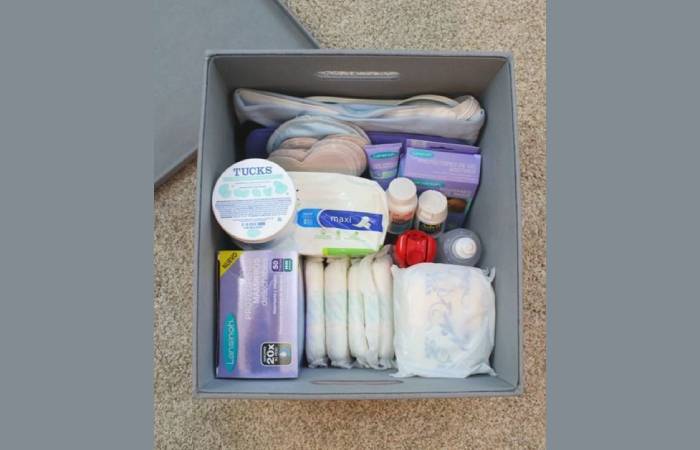The arrival of a new baby is a momentous and exciting time. However, it can also be overwhelming to think of all the new responsibilities and changes that come with having a newborn. Fortunately, with a little preparation and a few simple tips, your postpartum transition can be as smooth as possible. This guide will give you all the information you need to ensure your postpartum period is as stress-free as possible.
Table of Contents
1. Take Care of Yourself

Whether you had a normal delivery or CS, your body needs time to recuperate. Get as much sleep as possible for the first few days. Every time your kid sleeps, nap with them to get maximum rest hours.
Take turns with your partner or family members to care for the newborn. You cannot be expected to handle everything as a new mother. Remember that you are recovering from childbirth and gaining knowledge about infant care. Partner(s), relatives, friends, and postpartum nurses are all suggested helps.
Additionally, get help with the house chores. As a new mother, the rate of infections is high. You need to ensure that your immune system is not triggered. Countertops should be well-cleaned since that is where most of your food preparations will be for you and your baby. Any visible cracks in your kitchen countertop need to be attended to since it can be a health hazard for you and your newborn due to bacteria sipping through. Get better options from https://www.oppein-stone.com/, being assured of quality in aesthetics and durability.
Get gas and water pipes fixed in advance, so you do not have to worry about strangers coming into your home to fix things shwile you recover from childbirth.
2. Set Realistic Expectations

To ensure a smooth postpartum, setting realistic expectations for yourself is important.
The first few months after the baby arrives can be a roller coaster of emotions. You may feel overwhelmed by your new role as a parent, exhausted from sleepless nights, and struggling with changes to your body and lifestyle. Remind yourself that this is all normal, and take comfort in knowing these feelings are temporary.
It’s also important to remember that everyone’s postpartum experience is different. Don’t compare yourself to other parents who seem to be doing better or worse than you are. Instead, focus on your unique journey, and reach out to family and friends if you need help or reassurance.
Moreover, don’t forget to give yourself time and space to adjust to your new life as a parent. Making time for yourself will help you keep your energy and spirits high to enjoy this special time with your baby.
3. Stock up on Supplies

Having all the necessary supplies for your postpartum period can help your recovery and reduce stress levels. There are a few key items that you should be sure to have on hand before your baby arrives, including:
- Diapers and wipes: Having an ample supply of diapers and wipes is essential for your postpartum journey. Aim to buy enough diapers to last two to three weeks, plus an extra box or two in case of unexpected needs.
- Nursing essentials: If you are planning on breastfeeding, it is important to ensure you have the proper supplies. Stock up on nursing bras, breast pads, and nipple cream. Also, be sure to have a hands-free pump and storage bags.
- Toiletries: Ensure you are stocked on feminine hygiene products, such as pads and panty liners. You may also need healing ointments or sprays to reduce swelling and pain.
- Cleaning supplies: Having the right cleaning supplies can help keep your home clean and tidy, especially during those first few weeks when it might be difficult to keep up with chores. Stock up on laundry detergent, dish soap, wipes, and other cleaning supplies.
- Food: Eating a healthy diet is essential for postpartum healing and recovery. Fill your fridge and pantry with nutritious foods and snacks you can grab quickly when hunger strikes.
4. Bond with your baby

Finding time to bond with them can be hard when you’ve just had a baby. But bonding with your baby is one of the most important things you can do during postpartum. Bonding helps build trust and confidence between you and your baby and is essential to the parenting journey.
Here are some tips on how to bond with your baby during the postpartum period:
- Talk and sing your baby: Talk to your baby in a soothing voice and tell them stories. This is not only calming for both of you, but it also helps your baby learn about language. Singing helps stimulate their brain development.
- Hold your baby: Skin-to-skin contact is incredibly important for bonding. When you hold your baby, make sure you’re making direct eye contact with them and speaking in a soft tone.
- Respond to their cues: Pay close attention to your baby’s cues and respond accordingly. If hungry or tired, ensure they get what they need. This helps them understand that their needs will be met, which builds trust and connection.
Conclusion
There’s no right way to deal with postpartum. Start by prioritizing yourself so you can provide the best care for your newborn. This should be followed by building a bond with your child. It’ll help in emotional healing during the postpartum. Lastly, get as much help as possible. It’ll reduce physical strain on your part.
